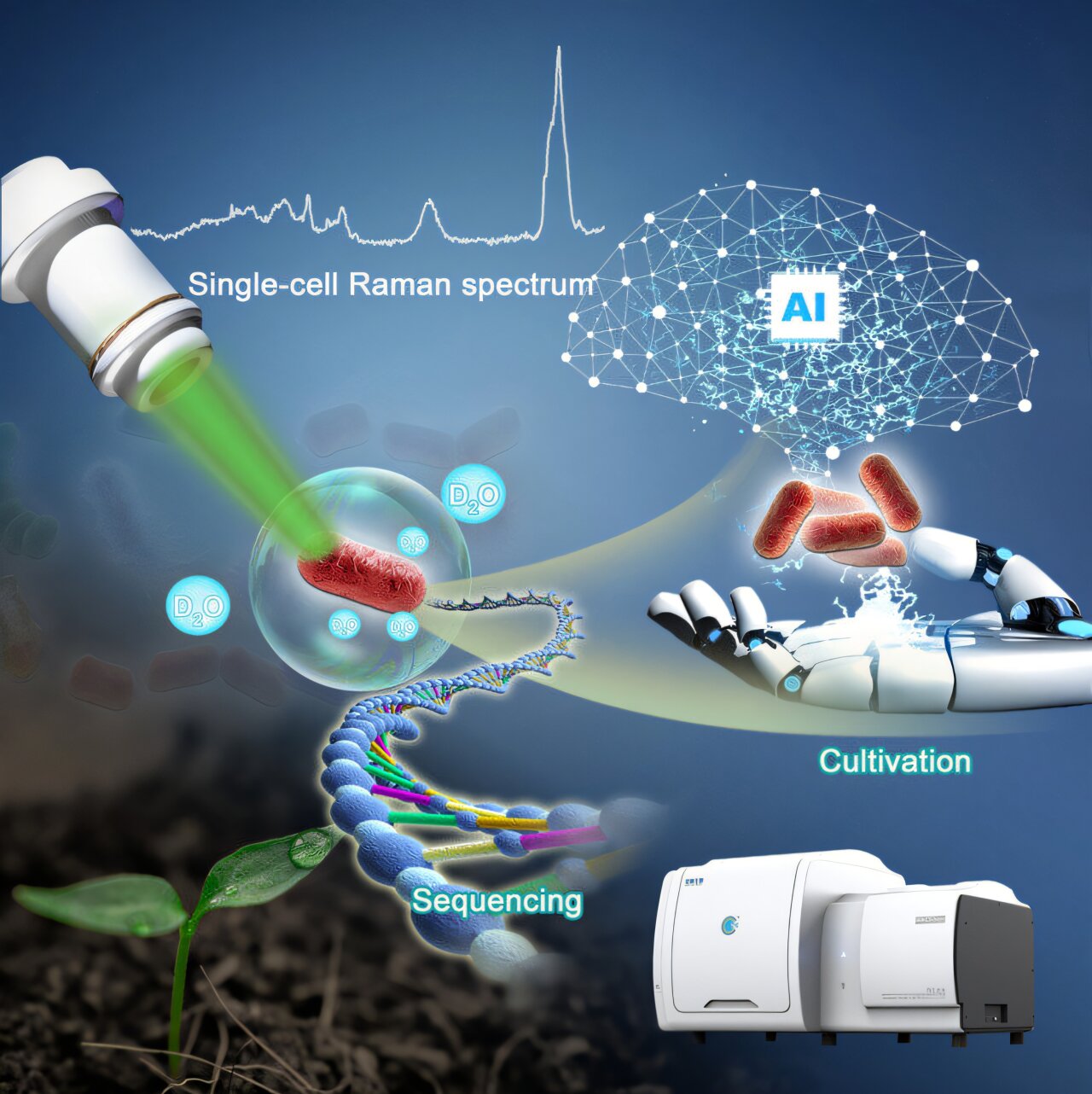Researchers from the Single-Cell Center at the Qingdao Institute of Bioenergy and Bioprocess Technology of the Chinese Academy of Sciences, together with collaborators, developed an artificial intelligence-assisted Raman-activated cell sorting (AI-RACS) system.
This innovative system automated the isolation and functional analysis of aluminum-tolerant microorganisms (ATMs) from acidic soil, marking a shift from manual, labor-intensive procedures to high-throughput automated workflows.
This study was published in Analytical Chemistry.
Microbiomes, dynamic communities of microorganisms, offer untapped potential for advancing biotechnology and environmental sustainability. However, their complexity poses challenges for the isolation and detailed study of specific functional microbes.
To address this issue, the AI-RACS system integrated optical tweezers, single-cell Raman spectroscopy (SCRS), and artificial intelligence. This integration enabled the precise identification, sorting, and collection of single cells, transforming microbial single-cell research from low-throughput manual operations to high-throughput automated workflows.
The researchers utilized the system to identify ATMs from acidic soil samples. By employing SCRS to assess cellular metabolic activity under aluminum stress, the researchers successfully identified and isolated 13 aluminum-tolerant strains, including Burkholderia spp., Rhodanobacter spp., and Staphylococcus aureus.
These strains exhibited higher metabolic activity compared to those identified through traditional cultivation methods. The use of SCRS as a quantitative biomarker allowed the researchers to pinpoint and categorize metabolically active microbes with unmatched precision.
“Our goal is to develop a system that automates single-cell analysis while improving precision and throughput needed for studying complex microbial communities,” said Dr. Diao Zhidian, first author of the study from Single-Cell Center. “This system enables researchers to explore microbiomes under near in situ conditions with high efficiency.”
The AI-RACS system opens up new possibilities in fields such as resource recovery, environmental management, and industrial biotechnology.
More information:
Zhidian Diao et al, Artificial Intelligence-Assisted Automatic Raman-Activated Cell Sorting (AI-RACS) System for Mining Specific Functional Microorganisms in the Microbiome, Analytical Chemistry (2024). DOI: 10.1021/acs.analchem.4c03213
Provided by
Chinese Academy of Sciences
Citation:
AI-assisted sorting system automates detection of aluminum-tolerant microbes in acidic soils (2024, November 21)
retrieved 21 November 2024
from https://phys.org/news/2024-11-ai-automates-aluminum-tolerant-microbes.html
This document is subject to copyright. Apart from any fair dealing for the purpose of private study or research, no
part may be reproduced without the written permission. The content is provided for information purposes only.


